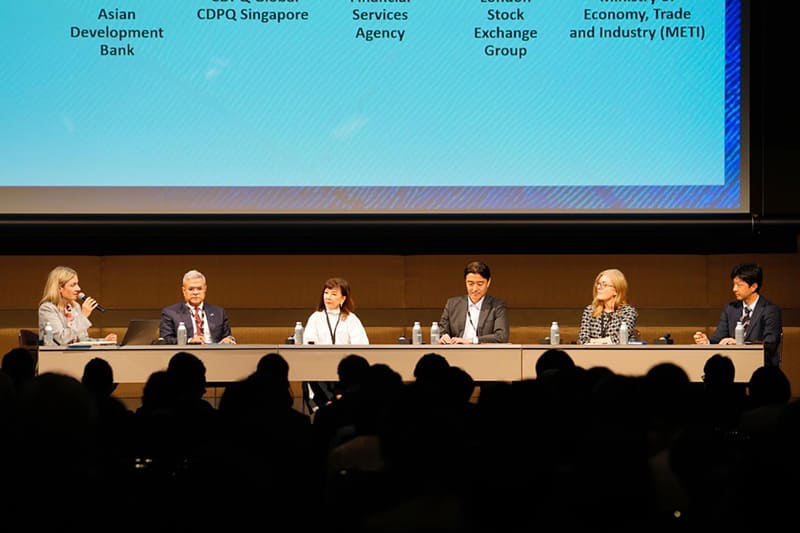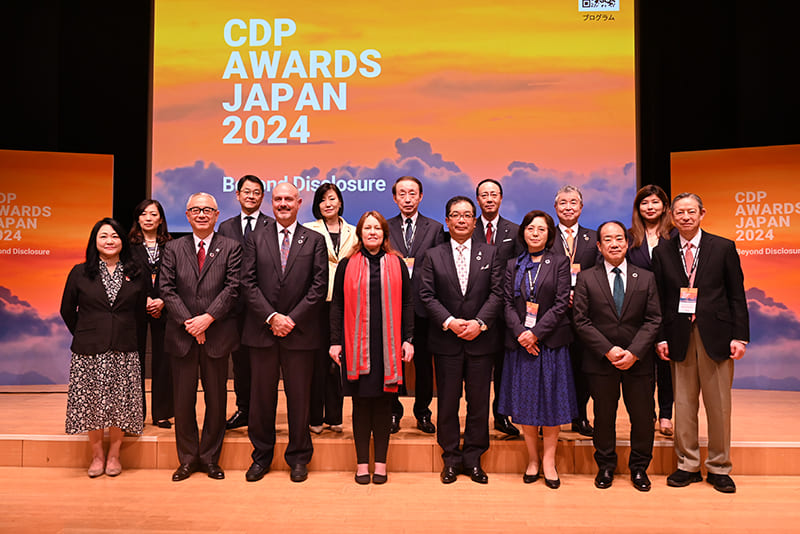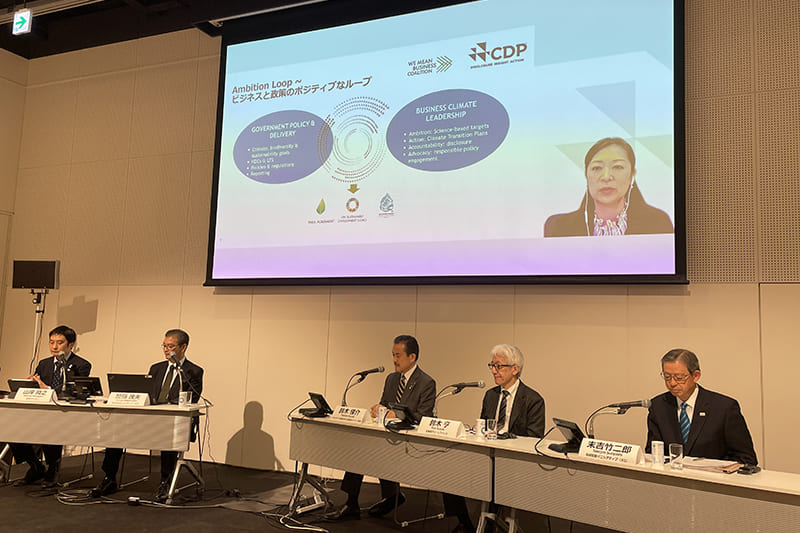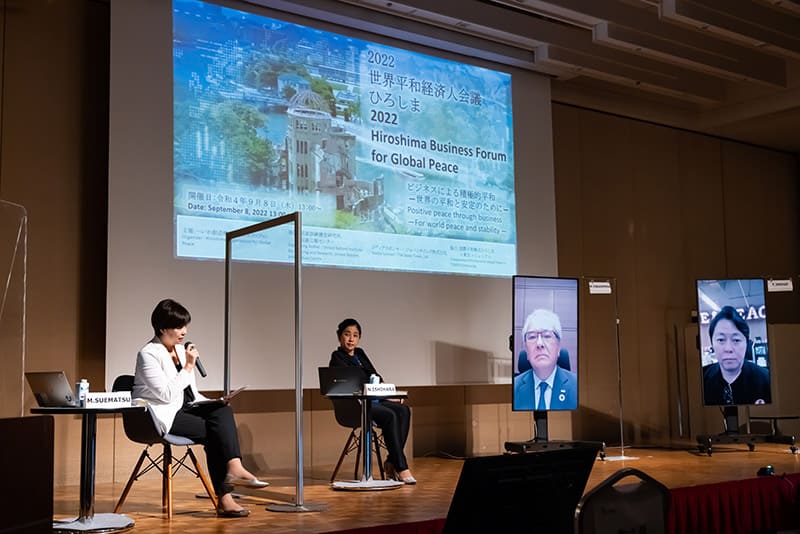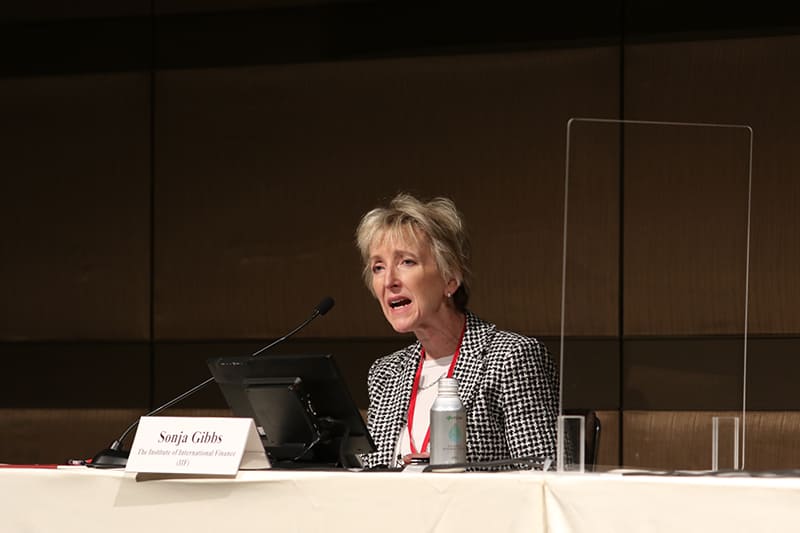June 21, 2024
Accelerating Japan’s path to achieving decarbonization
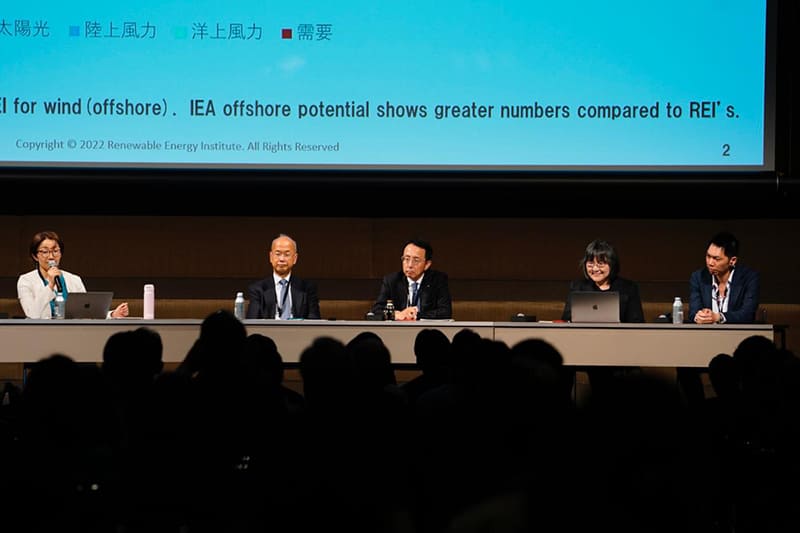
One of the major themes on the second day of the conference was how to back Japan’s transition to net-zero carbon emissions.
Under the topic of “accelerating Japan’s path to decarbonization,” panelists discussed how to support the country in changing from its heavy reliance on imported fossil fuels.
Yukari Takamura, a professor at the Institute for Future Initiatives at the University of Tokyo, said Japan is currently facing the challenging task of crafting reliable plans to reduce carbon emissions and deal with energy security at the same time.
While discussions for the country’s new strategic energy plan began last month, Japan is also working on the target for reducing emissions beyond 2030 that it is required under the Paris Agreement to submit next year. That means the country needs to seek solutions for reducing its consumption of fossil fuels, which currently account for about 85% of its greenhouse gas emissions.
The country pledged under former Prime Minister Yoshihide Suga in 2020 to aim for net-zero carbon emissions by 2050 in order to help reach the global target of limiting the temperature rise to 1.5 degrees Celsius. “The national energy plan is important not only for climate change, but for the country’s energy security as well as its energy costs and trade,” Takamura said.
She pointed out that Japan’s energy self-sufficiency rate is 13%, lower than those of other developed nations, and its trade balance shows that exports of automobiles and other machinery are offset by imports of fossil fuel.
“What Japan should do is curb energy demand, and at the same time increase renewable energy. It must create an energy system by combining multiple energy sources in a flexible way,” she said.
That is not an easy task because the country gets 70% of its energy from fossil fuels, of which 31% is from coal-fired power plants, Takamura continued. “To solve climate change issues and help companies and investors work on energy transition and decarbonization, we need a clear and ambitious target, and measures to support it.”
As for renewable energy, things have changed in recent years, said Kae Takase, the senior coordinator at the Renewable Energy Institute and moderator of the panel discussion. Technological developments in large-scale batteries and artificial intelligence make it easier to provide renewables more steadily, she said.
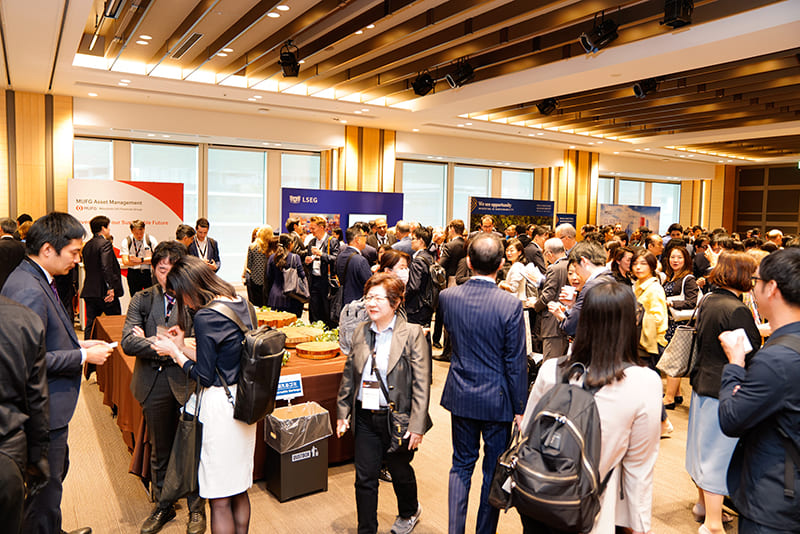
However, there is increasing uncertainty over the energy outlook. The geopolitical risks in part of Europe and the Middle East as well as the yen’s slump against major currencies worry Japanese energy importers, said Hiroshi Fujikawa, the chief sustainability officer for Kirin Holdings Co.
Therefore, Fujikawa urged policymakers to craft comprehensive national energy plans with clear blueprints for an economically efficient energy mix, taking into account the outlook for costs of renewables and other energy sources and the roles of the public and private sectors in the market.
Also, he stressed the importance of holistic approaches on not only zero emissions but biodiversity and ocean plastic as well, since a food company like Kirin has to deal with these and all sorts of other issues affecting food, alcohol and water.
Kenji Fujii, the Japan chapter lead for the Glasgow Financial Alliance for Net Zero, bringing together banks, insurance companies and asset managers from across the world, explained the alliance’s four transition financing strategies, launched in 2022 to support decarbonization in the world economy.
First is “climate solutions,” to finance technologies and services. This is followed by “aligned” and “aligning,” to finance companies that either are already aligned to a 1.5-degree pathway or are committed to transitioning to that pathway. The last strategy is “managed phaseout,” financing to accelerate the gradual shutdown of companies’ high-emitting facilities. In December, the alliance released a report giving step-by-step guidance for phasing out coal-fired power plants in the Asia-Pacific region.
However, financial institutions are not the only players tackling decarbonization. Others include governments and companies themselves. “Unless all players do their best in taking their roles and creating cooperation with each other, there is no way to achieve net zero,” Fujii said.
At the end of the panel discussion, Alexander Pui, an adjunct lecturer at the University of New South Wales, warned that Japan and other parts of the world must take into account the risk of devastating natural disasters due global warming when talking about the importance of renewable energy.
“We shouldn’t really be separating physical risk from transitional risk, because they’re interdependent,” he said.
While governments should support nascent technologies for renewables, they should also provide subsidies for disaster insurance and sponsor academia-industry collaboration to better understand such disasters. New financial products will be necessary, such as “parametric” insurance based on certain parameters being met, such as a flood or blackout, without requiring on-site verification of loss, and catastrophe bonds that financial institutions can invest in, Pui said.
Aiming to highlight issues related to a sustainable society, The Japan Times gave its support to this event by becoming a media partner.


